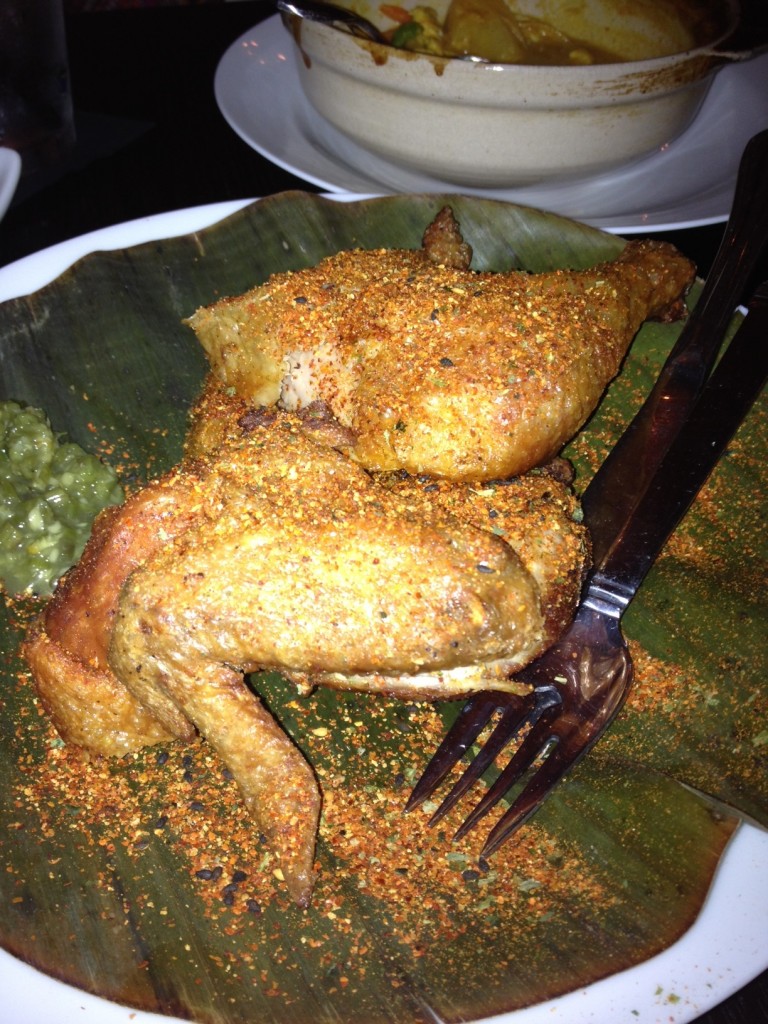 Guest Post by Allie Bones, Executive Director of AzCADV
Guest Post by Allie Bones, Executive Director of AzCADV
This year marks the twenty fifth anniversary of the first Domestic Violence Awareness Month (DVAM), when advocates across the country remember victims of violence, celebrate the strides we’ve made, lament recent setbacks, and spur communities to action.
Although its occurrence is often eclipsed by other causes recognized in October, we believe DVAM is one of the most important awareness campaigns observed throughout the year.
The AzCADV is a 501(c)(3) non-profit organization that represents anti-domestic violence programs and other concerned individuals and groups. The Coalition was formed in 1980 so that citizens and professionals could unite and, through this statewide organization, increase public awareness about domestic violence, enhance the safety and services for domestic violence victims, and reduce the incidence of domestic violence in Arizona families.
Our mission is: to lead, to advocate, to educate, to collaborate, to end domestic violence in Arizona.
As you might know, domestic violence is a pattern of behavior used by one partner to exert power and control over the other. This violence can take many forms, including physical, sexual, emotional, and financial abuse.
Domestic violence affects women, children, and men regardless of age, race, ethnicity, or class. However, according to the Bureau of Justice Statistics, 85% of victims of domestic violence are women (2003).
The AzCADV plays a vital role as the focal point for service providers and as a resource center for the general public. By working closely and collaboratively with a wide variety of other groups, we ensure domestic violence is a consideration in many forums. This coordination between providers and others maximizes the use of limited funding available for domestic violence services in Arizona.
We fulfill our mission by representing 36 domestic violence programs located across the state. These programs assist nearly 10,000 victims of domestic violence and their children each year with services ranging from emergency shelter beds and transitional housing, to support groups, individual counseling, employment assistance, legal advocacy, and child care, among others.
We recently celebrated with Advocates and AzCADV supporters of the anti-domestic violence community at the 3rd Annual Thrive Gala and Awards Dinner on September 19, 2012. It was an honor to present six Arizona advocates with the Thrive Awards to recognize their tenacity, strength, and commitment to ending domestic violence.
Gala guests know that their dedication to empowering the 12 million Americans who experience domestic violence each year is a noble and just pursuit. This event serves to inspire those who work tirelessly to give victims hope and support when they have none.
We presented the statewide conference on domestic violence in September as well, and were pleased to host over one hundred advocates who learned from local and national experts about the latest trends and research in the field.
While these amazing advocates and community partners continue to serve victims and their children in emergency shelters and non-residential programs, some recent developments aren’t cause for celebration.
When a courageous victim reaches out for help, too often she or he finds none is available. In one 24-hour period in late 2011, 36 programs in our state served 1,611 victims of domestic violence. Sadly, programs had to turn away 195 victims during that period. Programs did not have available beds or enough staff to meet every request, so some victims in Arizona are not finding help from conventional sources even when they find the courage to reach out.
Put yourself in a victim’s shoes: imagine gathering the fortitude to make the call to an emergency shelter. Imagine telling a perfect stranger that you’re being hurt by someone you love and are thinking of fleeing your home. Imagine being willing to leave everything behind, packing just a small bag with your most valuable possessions- if there is even time to pack anything at all. Now, imagine being told there isn’t room for you.
What’s more, state funding for Arizona’s domestic violence programs has recently been altered. While some programs received an increase, others saw their funding slashed by up to 80%. We fear this will result in other victims being turned away from shelters and non-residential programs.
Since 2000, AzCADV has researched and tracked the domestic violence-related fatalities that occur in Arizona.
In 12 years, at least 1,213 people have died in domestic violence-related incidents. We define “domestic violence-related incidents” broadly, including victims of familial homicide, intimate partner homicide, perpetrators who commit suicide or are killed by law enforcement during a domestic violence incident, and bystanders who may have tried to intervene or were targeted by a perpetrator.
This creates a reasonably comprehensive picture, but it is inherently incomplete. Some fatalities fail to garner a news article, or information related to underlying domestic violence may not be included. Other deaths may occur in related circumstances but cannot be specifically linked to domestic violence.
In 2011, 103 people died in tragedies that we know about. The youngest, Angel Diaz, was just 6 months old. The oldest was 76. More males died than females, which has been a trend since we started tracking the deaths.
Males, however, were rarely killed by current or former intimate partners. Of the 54 men who died in domestic violence-related incidents in 2011, 7 were victims of intimate partner violence, representing 12% of the deceased males. The vast majority committed suicide, which is consistent with information from previous years.
The majority of female victims, however, were murdered by intimate partners (53%). For more information on domestic violence-related fatalities and to read our yearly reports, visit http://azcadv.org/domestic-violence-info/downloadable-resourc/statistics-reports-a/fatality-and-homicid/top.
One way we’re addressing the above issues is by providing the latest research and model polices in trainings across Arizona. Our Training Department speaks with advocates, law enforcement officials, social service agencies, and community members on a wide variety of topics, including best practices in crisis intervention, skills for new advocates, and substance abuse and domestic violence.
If you would like to schedule a training for your agency or join one of our upcoming events, please visit http://www.eventbrite.com/org/461277497?s=3942045.
Sometimes it seems like there is nothing that can be done, that the problem is too big and too many people have been hurt by domestic violence. But there are ways for each of us to be a part of the solution.
What can you do?
1. Know what resources are available so you can refer a friend or family member who reaches out for help. The Arizona Coalition Against Domestic Violence’s Legal Advocacy Hotline is available Monday through Friday, 8:30 am to 5 pm to assist with legal information, referrals, and safety planning (602-279-2900). The National Domestic Violence Hotline is available round the clock and can be reached at 1-800-799-SAFE (7233).
2. Consider volunteering or donating to your local anti-domestic violence program. Find out what services are located near you by visiting www.azcadv.org.
3. Learn more. An issue that affects one in four women surely demands our attention. Read more at http://www.thehotline.org/get-educated/.
It is possible to end domestic violence in Arizona.
It will take dedication. It will take resources. It will take persistence.
And it will take every one of us.
***************************************************************************
Here’s where to find help if you are being abused.
Want to help? Tweet or FB this link and break the silence about Domestic Violence. Someone you know is in an abusive relationship and needs this information!
Don’t miss an update. Sign up for Organic Mama Cafe’s email list. This subject will stay on my agenda even when October ends.
YTo3OntzOjk6IndpZGdldF9pZCI7czoyMDoid3lzaWphLW5sLTEzNTA2NjgwMjkiO3M6NToibGlzdHMiO2E6MTp7aTowO3M6MToiMSI7fXM6MTA6Imxpc3RzX25hbWUiO2E6MTp7aToxO3M6MTM6Ik15IGZpcnN0IGxpc3QiO31zOjEyOiJhdXRvcmVnaXN0ZXIiO3M6MTc6Im5vdF9hdXRvX3JlZ2lzdGVyIjtzOjEyOiJsYWJlbHN3aXRoaW4iO3M6MTM6ImxhYmVsc193aXRoaW4iO3M6Njoic3VibWl0IjtzOjEwOiJTdWJzY3JpYmUhIjtzOjc6InN1Y2Nlc3MiO3M6NTA6IkNoZWNrIHlvdXIgaW5ib3ggbm93IHRvIGNvbmZpcm0geW91ciBzdWJzY3JpcHRpb24uIjt9
Allie Bones is the Executive Director of the Arizona Coalition Against Domestic Violence (AZCADV). The mission of the organization is to lead, to advocate, to educate, to end domestic violence in Arizona. Throughout her career, she has held a variety of governmental and advocacy positions focusing on issues of violence against women, homelessness and hunger.
Allie has previously worked for the AZ Department of Economic Security as the State Homeless Coordinator and Program Manager for domestic violence, homeless, and hunger programs. Before that, she was a Senior Program Analyst for Violence Against Women in former Governor Janet Napolitano’s Office for Children, Youth and Families, Division for Women. Allie was an Executive Director for the Arizona Coalition to End Homelessness just before joining the Governor’s staff, and she started her career with the AZCADV as a Systems Advocate, advocating and lobbying for systems changes to improve the lives of victims of domestic violence and hold offenders accountable.
Allie earned her Bachelor’s Degree from the University of Arizona in Family Studies and completed her Master of Social Work in May of 2001 at Arizona State University.
In her free time, Allie enjoys spending time with her husband since 2000, Dave, and their children traveling, boating, golfing and watching movies.









